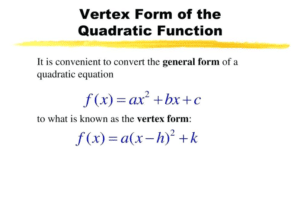Spanish Verb Conjugation Tener: It is specifically helpful to recognize the day-to-day Spanish verb tener, translated as “to have.” It is utilized to suggest not just belongings yet likewise feelings and states of remaining in a selection.
The word tener implies “to have” in the sense of “to have” or “to own.” It is almost similar to the English auxiliary verb “to have.”
Spanish Verb: tener
Tener Verb Conjugation in Spanish
Translation in English: to have (preterite: to get, to get).
Note: It is an irregular verb in the here and now, e changes to, i.e., in the preterite, tuv-, in the future and also conditional, tendr-, in the necessary, 10.
Tener Verb Conjugation In A Sign.
Spanish Verb Conjugation Tener
Suggesting And Also Expressions Of ‘Tener’.
Now that you understand how to conjugate tener, allow you to utilize it to develop typical expressions in Spanish. In English, we use various verbs to state several of these suggestions, so you ought to examine the recommendations behind these expressions instead of trying to convert their definitions verbatim.
Tener means “to have” and is used in various idiomatic expressions.
Colloquial Uses Tener.
Expressions making use of tener are likewise reasonably common. Most of them would not be recognized by English speakers to suggest possession, although they typically can be taken as referring to having different feelings and sensations.
For instance, tener hambre would be converted essentially as “to have cravings,” although it would usually be recognized as “to be starving.”.
Ways to Use Tener To Mean ‘to be’: Spanish Verb Conjugation Tener
In many expressions, tener means ‘to be.’
English: to be 25 years old
Spanish: tener 25 años
English: to be charming
Spanish: tener ángel
English: to be lucky, unlucky
Spanish: tener buena, mala estrella
English: to be hot, cold
Spanish: tener calor, frío
English: to be jealous of
Spanish: tener celos de
English: to be careful
Spanish: tener cuidado
English: to be to blame for
Spanish: tener la culpa de
English: to be successful
Spanish: tener éxito
English: to be hungry, thirsty
Spanish: tener hambre, sed
English: to be made for, cut out for
Spanish: tener madera para
A verb is a word that denotes an action or, as I was told at the institution, a doing word. And all verbs are conjugate to a degree. This conjugation of verbs is needed in all languages to determine who is executing a task or an action; Spanish conjugation is not various.
Spanish Verb Conjugation Tener
In Spanish, there are regular and uneven verbs. Regular verbs are called so since they follow 3 Spanish conjugation patterns, and irregular verbs are called irregular because, well … they do not! Both standard and irregular Spanish verbs have three groups, frequently referred to as -ar verbs; -in verbs and -emergency room verbs, so-called because ALL Spanish verbs will certainly utilize one of these three endings, regardless of whether they are regular or uneven verbs.
Read Also: How To Use Llegar Conjugation In Spanish?
This short description of Spanish conjugations covers today’s tense conjugations for ordinary Spanish verbs; it will undoubtedly need a superb research study buddy for regular and also Uneven Spanish verbs for much more detailed research of Spanish conjugations, and also the best research buddy currently offered can be located by adhering to the web links at the bottom of this short article.
English: to be short-tempered
Spanish: tener malas pulgas
English: to be afraid of
Spanish: tener miedo de
English: to be sophisticated
Spanish: tener mundo
English: to be in a hurry
Spanish: tener prisa
English: to be right
Spanish: tener razón
English: to be sleepy
Spanish: tener sueño
English: to be lucky
Spanish: tener suerte
English: to be ashamed of
Spanish: tener vergüenza de
Examples to Use Tener To Mean ‘To Have’
In many cases, tener employ in much the same way as “to have” is in English. Based on the context, one can also interpret it in synonyms such as “to possess” and “to own”:
English: I have three children.
Spanish: Tengo tres hijos.
Suggesting And Also Expressions Of ‘Tener’.
Now that you understand how to conjugate tener, allow you to utilize it to develop typical expressions in Spanish. In English, we use various verbs to state several of these suggestions, so you ought to examine the recommendations behind these expressions instead of trying to convert their definitions verbatim.
Tener means “to have” and is use in various idiomatic expressions.
Colloquial Uses Tener.
Expressions making use of tener are likewise reasonably common. Most of them would not recognize by English speakers to suggest possession. Although they typically taken as referring to the having of different feelings and also sensations.
For instance, tener hambre would convert essentially as “to have cravings,” although it would generally recognize as “to be starving.”
Crucial Indicate Remember
Tener typically suggests “to have” in the feeling of “to have,” but not “have” when it is use as a supporting verb.
Tener is highly uneven, not using the same conjugation as any other verb other than those derived from tener.
A wide array of expressions use tener, which regularly is use for indicating feelings and numerous personal feelings.
FAQs
What are the four means to make use of tener?
4 Ways to use Tener (to have) in Spanish
To mention age, edad.
To speak about possessions and posesiones.
with numerous expressions regarding states or demands, expresiones de estados o necesidades.
To discuss health problems or health issues, enfermedades.
How do you utilize tienen in a sentence?
Tienen que estudiar mucho para el examen. They need to study a whole lot for the examination. Tengo que hacer la compra para la cena. I have to do the purchasing dinner.
What is tener use for?
Tener suggests ‘to have’. Its many essential kinds are use to reveal ownership and requirement. At various other times, it is use typically in wording where you’d generally use the verb ‘to be’.
How do I make use of tener in a sentence?
We use the verb tener (to have) to talk about age in Spanish.
To state I am number years of age, we utilize tengo + number of years + años.
Yo tengo veintiséis años. I am twenty-six years old.








